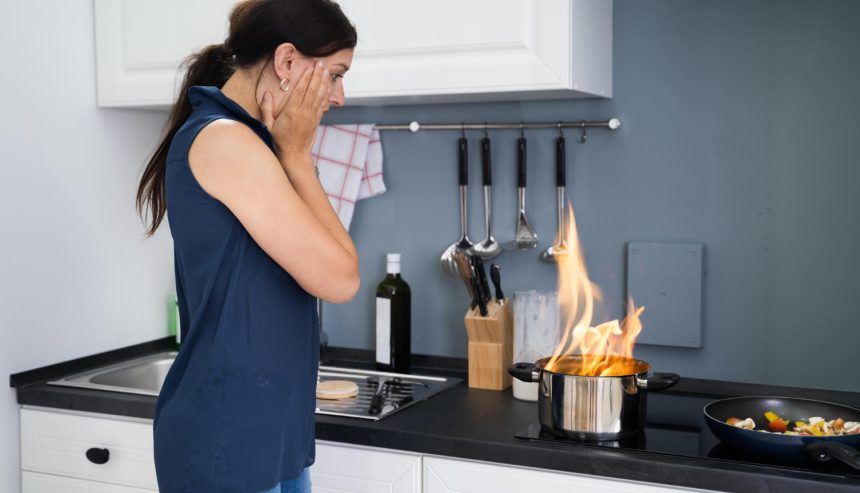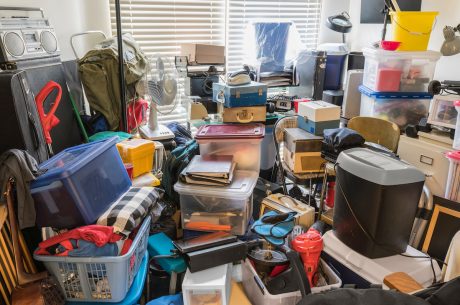When a kitchen fire happens, even a small one, the smoke smell left behind can be hard to deal with. You might clean up the visible mess quickly, but that odor tends to linger. Days or even weeks later, it can still be trapped in your walls, cabinets, and fabrics. Most kitchen fires involve burnt food or grease, so the smell isn’t just strong, it’s sticky, thick, and hard to ignore.
In humid climates like Naples, FL, odors can stick around even longer if you don’t take the right steps. Heat and moisture actually help keep those smoky particles clinging to surfaces. That’s why smoke damage should be handled the right way, from the start. Taking immediate action and understanding how odors spread makes a big difference in getting your home smelling fresh again.
Identifying The Source Of Smoke Odors
The first step is knowing exactly where the odor is coming from. Smoke moves fast when there’s a fire, especially in tight kitchen spaces. It can sneak into spots you wouldn’t expect and stay there long after the flames are out. Tracking down these hidden areas can help you figure out what needs deeper cleaning.
Here are some common places where smoke tends to settle in the kitchen:
1. On walls and ceilings near the stove or cooking area
2. Inside cabinets, especially those close to the fire source
3. Behind and underneath appliances like ovens, microwaves, and refrigerators
4. In kitchen exhaust fans, vents, and range hoods
5. On countertop edges, backsplashes, and drawer surfaces
Even light smoke from burnt food can leave a smoky film on these surfaces. You might not see it right away, but you’ll smell it. If left alone, these particles will keep releasing that burnt odor every time it’s warm or humid. For the best chance at fully clearing the smell, it’s important that every affected surface is inspected, even if it doesn’t show visible damage. Simply wiping down a few surfaces won’t fix the problem if the deeper layers are still holding onto smoke.
Initial Cleaning Steps To Reduce Smoke Odors
Once the fire is out and it’s safe to get started, there are a few early actions that can help cut down the odor before bigger steps are taken. Keep in mind, these don’t fully remove smoke smells, but they do limit how bad the smoke spreads through your home.
To help improve air quality and reduce the strength of the smoke odor, start with the following:
1. Open all windows and doors to bring in fresh air. Cross-ventilation is helpful, especially with fans pointing out
2. Wipe down hard surfaces using warm water and a mild detergent. Focus on kitchen counters, appliance faces, and cabinet doors
3. Launder or remove any fabrics like curtains, small rugs, or dishcloths in or near the kitchen
4. Vacuum upholstered furniture and any nearby carpets using an attachment with a HEPA filter if available
5. Clean or replace air filters in your HVAC system to avoid spreading smoke particles through your vents
Even after doing all this, it’s common for the smoke smell to stick around, especially in porous materials like drywall, insulation, and carpeting. Kitchen cabinets made of wood or MDF can absorb smoke faster because they’re often unfinished inside. It’s helpful to remember that these first steps are mostly about stopping further spread, not completely solving the issue. Without professional tools and deeper treatment, the odor can return quickly, especially in warm and humid climates like Southwest Florida.
Professional Smoke Restoration Techniques
Even after giving your kitchen a thorough scrub and airing out the space, smoke smells can still cling to surfaces. That’s because the odor molecules from smoke burrow into materials and stay trapped. Regular cleaning just can’t reach them all. To fully get rid of the smell, deeper methods that go beyond the surface are often needed. This is where professional smoke restoration steps in.
One of the most effective techniques used is thermal fogging. It involves warming up a deodorizing agent until it becomes a fog that acts like smoke. Because it’s so fine, it moves through the air and into every small space, just like smoke did during the fire. Cabinets, vents, fabric, and even stubborn spots behind the stove get reached this way. It helps neutralize the odor in places normal cleaning can’t reach.
Ozone treatment is another common method for removing smoke odors. Machines are placed inside the home to release ozone gas, which reacts with the smoke particles on a chemical level. This process breaks down the particles and removes the odor entirely, rather than just masking it. Since ozone treatment needs to be handled with care, it’s something that should always be done by trained professionals to avoid safety risks.
In homes around Naples, where moisture and heat are constant issues, these professional techniques are especially useful. Porous materials like wood cabinets, insulation, and drywall are more difficult to treat with basic cleaning. The longer smoke sits inside those materials, the harder it becomes to remove. So, dragging out the process doesn’t make things any easier. If the smell keeps coming back even after you’ve cleaned, that’s a sign it’s time for specialized help.
Preventive Measures For Future Kitchen Fires
While smoke damage cleanup is frustrating, preventing kitchen fires in the first place saves time and money long before anything ever gets burned. Many fires start from simple things like unattended pots or grease build-up on stovetops. Practicing awareness and doing regular kitchen checks can go a long way.
Here are some easy ways to reduce the chance of kitchen fires:
1. Stay in the kitchen while cooking, especially when frying, grilling, or broiling
2. Keep flammable items like dish towels, oven mitts, and food wrappers away from the stovetop
3. Wipe down cooktops and vents often to clear grease buildup
4. Make sure all appliances are working properly and aren’t overheating
5. Install a working smoke alarm nearby and test it monthly
6. Place a fire extinguisher in an easy-to-reach spot and learn how to use it
It’s also smart to check your range hood filter every so often, especially if you cook with oil or on high heat. In Florida homes where kitchens run all year round due to short winters, filters get dirty fast. Grease-soaked filters catch fire more easily than you might think. And once a flare-up starts, it doesn’t take long for that smoke to fill the house.
If you’ve ever had a small fire that seemed like no big deal at the time, like when something falls to the bottom of the oven and burns, you’ve seen how that smell can linger. Even if you clear it out fast, it’s hard to forget. Taking precautions and keeping up with maintenance helps lower the risk of a repeat.
Get the Smoke Smell Out for Good
Dealing with a smoke-filled kitchen is more than just a deep clean. The particles from burnt food or grease can settle deep inside surfaces and come back days or even weeks later. You want your home to smell like home again, not like a reminder of what happened. The sooner you treat the damage, the better chance you have of removing those smells for good.
If you’re in Naples where heat and humidity are part of daily life, it’s especially important to avoid letting smoke odors sit for too long. Moist air holds onto smells, and porous materials in your home can keep holding smoke well after the fire’s gone. Whether the damage was from a serious flame or just a tough cooking mishap, getting the right help makes all the difference. Trusting experts to step in with the proper tools and experience means fresher air, a cleaner home, and one less thing to worry about.
If you’re dealing with stubborn smells after a kitchen fire, it’s time to get help from professionals who can fully clean the space. Our trusted smoke restoration services are designed to bring comfort and freshness back to your home. Count on PuroClean of Naples to handle everything safely and thoroughly. Reach out today to get started.



